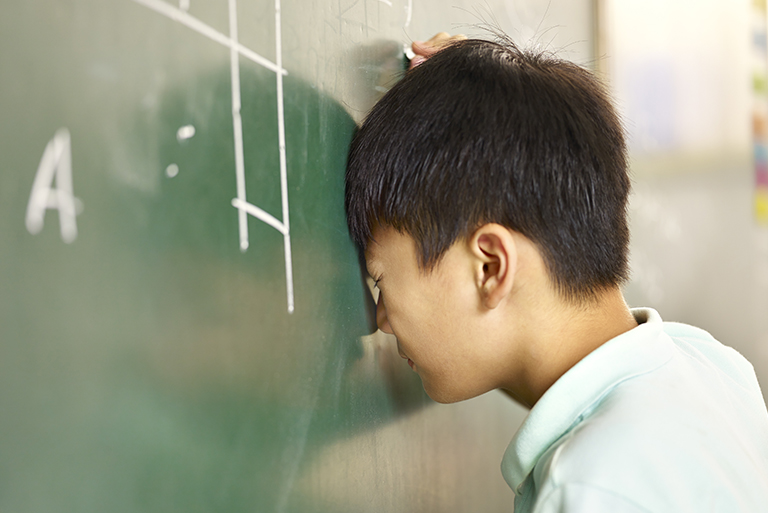What is dementia and how does it affect you?
Dementia is a disease of the brain that causes damage to the brain cells and causes the affected person to lose their memory and other cognitive skills. This can affect their ability to carry out everyday activities and may cause changes to their behaviour, mood and personality.
Therefore, it can be emotionally distressing when a family member or you gets diagnosed with dementia. It gets even more distressing and taxing as the disease progresses, with the patient often requiring care for the simple things we take for granted like having a meal or going to the toilet.
There are many types of dementia such as Alzheimer’s Disease, Vascular Dementia, Lewy Body Dementia, Frontotemporal Dementia, etc. However, the two most common types are Alzheimer’s Disease and Vascular Dementia. The cause of Alzheimer’s Disease is unknown but can be partly attributed to genes causing production and deposition of beta-amyloid plaques that can damage brain cells. Meanwhile, Vascular Dementia is most often caused by multiple small strokes that usually occur over several years.
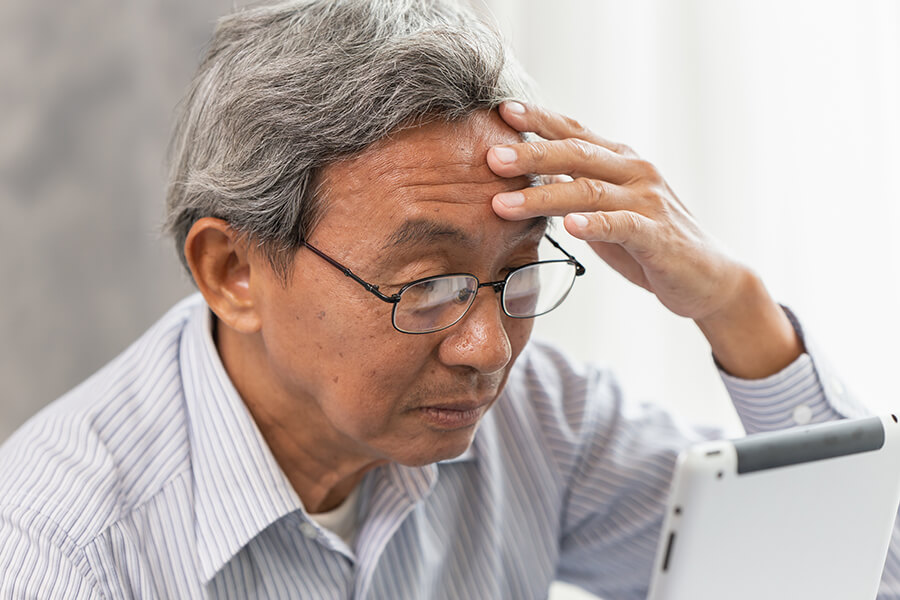
Causes of dementia from the TCM perspective
From the TCM perspective, dementia can be caused by the following:
1) Lack of marrow in the brain
Ageing or chronic illnesses can deplete the brain marrow, causing lack of nourishment to the brain. This can lead to degeneration which results in problems with memory and thinking skills.
2) Qi and blood deficiency
Lack of qi and blood, which arises from chronic illnesses or a weak digestive system, can reduce blood flow to the Heart (which governs emotions and thoughts from the TCM perspective). This results in the manifestation of emotional problems and psychiatric conditions such as agitation or anxiety.
3) Kidney essence deficiency
Kidney essence deficiency from old age and chronic illnesses can reduce the amount of essence that is being sent up to the brain to be stored as marrow for the nourishment of the brain.
4) Blood stasis and phlegm accumulation
These toxins can block the flow of qi and blood to the brain. Furthermore, blood stasis and phlegm can develop fire or heat in the body over time, which can disrupt proper brain functioning.
How can TCM help to cope with dementia?
As the population ages, the number of people living with dementia has been on the rise. Conventional Western medicine can help to delay the speed of disease progression, but only for a limited period of time. Patients may develop side effects to these western drugs and some may even find it intolerable. Hence, over the years, there has been an increasing trend of dementia patients turning to TCM for dementia support worldwide.
Patients and caregivers usually seek TCM to help cope with the variety of symptoms as dementia progresses, such as memory loss, attention problems, depression and anxiety. TCM is also used to help patients cope with the side effects from medication, such as nausea, poor appetite, constipation and headache.
There are many clinical studies that show that TCM is effective in supporting treatments against dementia. TCM herbal medicine and acupuncture have been effectively used in clinical settings to help slow down the progression of the disease and in some cases improve the cognitive functions and ability of patients to do everyday activities. 1-4
For patients who are unable to handle the side effects from their medication or patients who have reached the advanced stage of dementia where conventional drugs can no longer produce meaningful changes in memory or behaviour, TCM can play a dominant role to help improve the quality of life and reduce social and economic burdens of the patient and their family. Research has shown that TCM can reduce the need for special nursing care and medical expenses. Past studies revealed that integrated TCM therapies can reduce the risk of urinary catheterization for people who have difficulty emptying their bladder due to weakness of bladder muscles[5] and reduce the risk of pneumonia among dementia patients who have difficulty in swallowing. 6,7
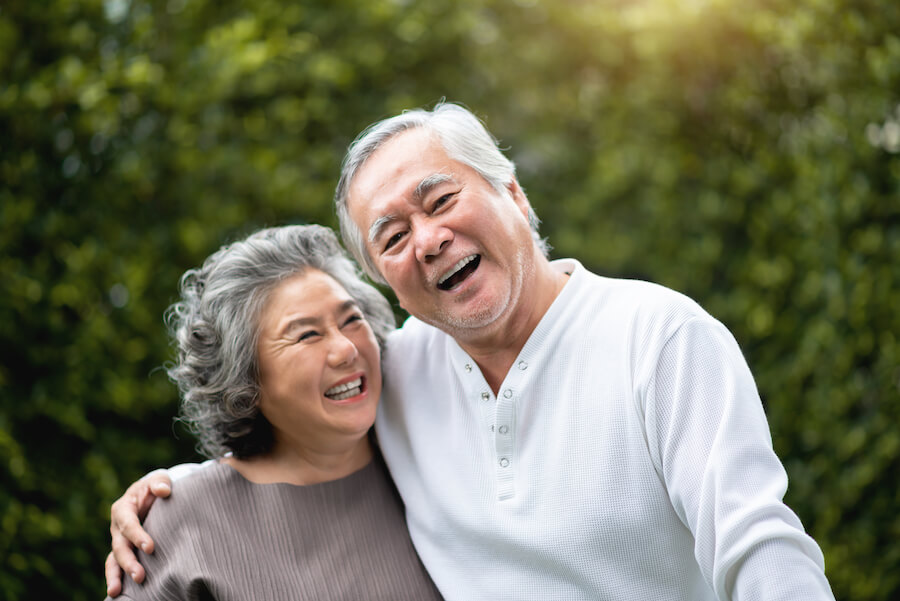
How can we help dementia patients at Oriental Remedies Group?
Here at Oriental Remedies, we believe in tapping into both Traditional Chinese Medicine and Technology-Enhanced Therapies to help patients with dementia by leveraging on the scientific knowledge of our body’s physiology. As dementia is a complicated and multi-faceted issue, the synergistic combination of both treatments tends to produce better outcomes for patients with dementia.
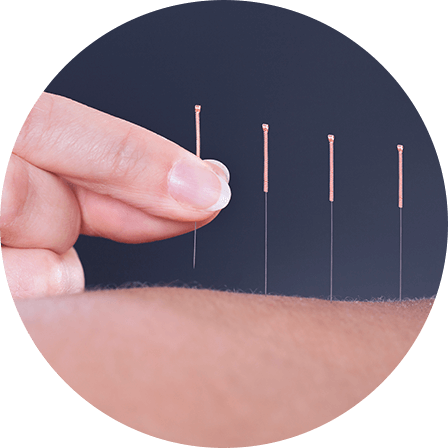
Acupuncture
Acupuncture involves inserting very fine needles into specific points along the meridians to stimulate the flow of Qi in our body. Specifically, there is a special Meridian, Du Mai, which runs along the head and enters our brain. Several points on the Du Mai, as well as specific points on our head, can be used to improve cognitive functions. Acupoints Baihui (GV 20), Sishencong (EX-HN1) and Shenting (GV 24) are commonly used points with high clinical efficacy, especially so for acupoint Baihui (GV 20).
Research has shown that GV 20 exerts its therapeutic effects by increasing dopamine levels. [8] Dopamine serves various important functions. Its functions include acting as a neurotransmitter and being a key regulator in synaptic plasticity, playing a key role in the transmission of signals in our brain. In addition, GV 20, together with Zusanli (ST 36), also preserves the integrity of our Blood-Brain Barrier (BBB) and reduce permeability. 8
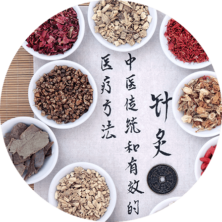
Herbal Medication & Dietary Changes
There are several herbs in TCM that are used to boost memory and cognitive functions. They are also used to manage behavioral and psychological symptoms associated with dementia. The most commonly used herbs for dementia patients include Thinleaf milkwort (远志), Ginseng(人参), Poria(茯苓), Chinese Angelica(当归) and Prepared rehmannia root(熟地).
From the TCM perspective, Thinleaf milkwort can anchor the mind, dispel phlegm, and reduce swelling. Ginseng tonifies Qi, strengthens the immunity and tranquilizes the mind. Poria induces diuresis to drain dampness, invigorates the spleen function, and calms the mind. Chinese Angelica tonifies and activates blood, regulate menstruation, relieve pain, moisten the intestines and relaxes bowels. Prepared rehmannia root nourishes yin and replenishes blood, as well as reinforcing essence and marrow.
There are numerous animals and in-vitro studies that indicate these herbs can elicit memory-cultivating effects through mechanisms such as eliciting estrogen-like effects, cholinergic, antioxidants, anti-inflammatory, antiapoptotic, neurogenetic, and anti-Aβ activities, which are similar to modern pharmaco-drugs prescribed for dementia. 9
Other commonly used and studied herbs such as Ginkgo biloba (银杏叶), Curcuma longa (姜黄), Panax notoginseng (三七) and Salvia miltiorrhiza (丹参) have anti-inflammatory and antioxidant properties to reduce oxidative stress and inflammation in the brain. 10
In essence, the treatment of dementia with TCM can be achieved through tonifying qi and blood, strengthening the kidney essence which can produce marrow to nourish the brain, and removing blood stasis and toxins from the body. Every patient will be assessed holistically and the techniques and herbs used will be specially curated for the individual to target the root cause.
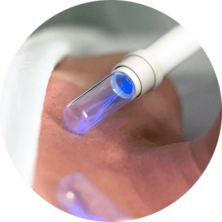
Electro-Lymphatic Therapy (ELT)
Electro-Lymphatic Drainage Therapy (ELT) is a gentle and non-invasive therapy that helps to stimulate proper flow and drainage of the lymphatic system, simulating the effects of a lymphatic drainage massage or tuina without the pain and pressure. ELT is performed using an FDA-registered wellness device to boost your overall wellness.
With the newfound understanding that the outflow of cerebrospinal fluid is predominantly through lymphatic vessels 11, our lymphatic system plays a vital role. Based on new research, good lymphatic drainage could support dementia by stimulating cerebrospinal fluids to clear misfolded proteins and remove toxins that accumulate in the brain. 12
Prevention and Dementia Care
Dementia usually develops slowly over time in months, or even years, and sometimes the memory deficits can be assumed to be attributed to the natural process of ageing. Hence, it often goes unnoticed. The early signs of dementia can include:
1) Forgetting things that happened recently or recent conversations
2) Saying things or asking questions over and over again
3) Having difficulty completing everyday tasks like paying bills or shopping for groceries
4) Reluctance to try new things and having trouble making decisions
5) Struggling to find words in the middle of a conversation
6) No longer interested in doing things that used to be enjoyable
7) Engaging in actions or doing things that are unusual for the person
If you find your loved ones displaying the above characteristics, he or she may be developing dementia. Do not hesitate to start treatment early.
In addition to getting treatment for dementia patients, dementia care is pertinent to help with their recovery. Caregivers should encourage dementia patients to engage in activities to keep their brains active, such as playing crossword puzzles or making a list of daily things for them to accomplish. In terms of food and diet, dementia patients are encouraged to drink more green tea as tea leaves has bio-active compounds with anti-apoptosis and anti-inflammatory effects. Adding herbs such as sage and rosemary to the food they eat can help to strengthen their cognitive functions as well.
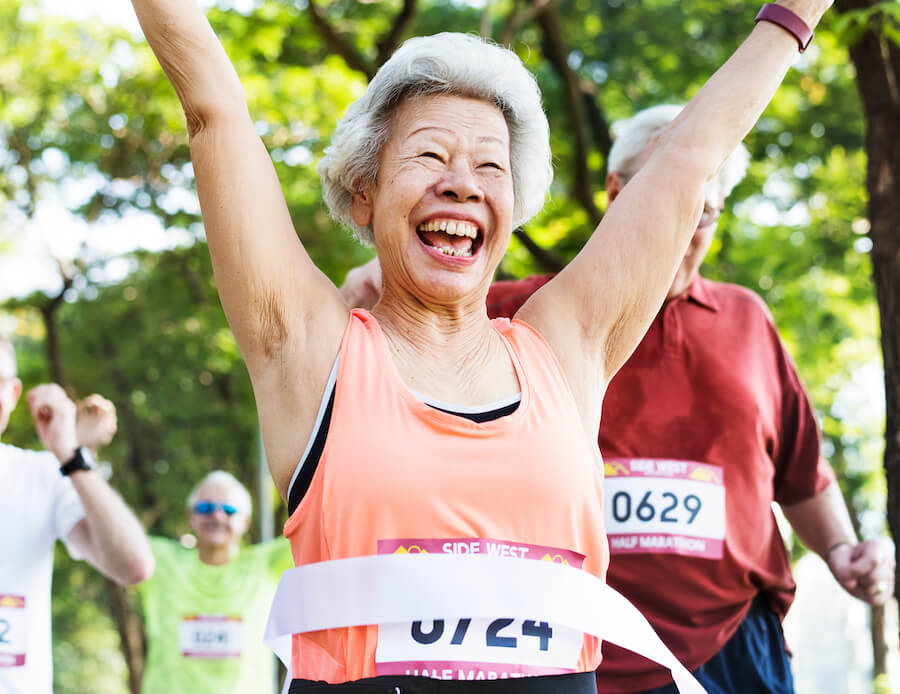
Your healing is the most important
In Oriental Remedies Group, we have more than 10 certified bi-lingual TCM Physicians. Each of them has been trained in Nanyang Technological University (Singapore) and China for a minimum of 5-8 years, in both Biomedical Science and TCM before being certified to practice in Singapore. Specifically, we have Physician Lee who specializes in treating Stroke and Dementia patients, on top of excelling at bone setting.
Dementia is a problem that plagues much of our silver generation. Not only does it severely affect the quality of life of the person suffering from dementia, but this issue also has a negative impact on the caregivers who may suffer from large amounts of stress from taking care of dementia patients. As the issue progresses, there are further implications on the physical and mental health of both parties as well. It is therefore important to seek the necessary treatments to improve cognitive functions and prevent the condition from worsening, as well as to actively lookout for early signs of dementia to nip it in the bud. The fight against dementia will be a long daunting one, but by combining our expertise with Traditional Chinese Medicine Treatments and Technology-Enhanced Therapies, we strive to provide the best care possible in your journey with us.
Please contact us at +65 8142 2163 for a personalized consultation.
This article is written by Senior Physician Lee, with contribution from Senior Therapist Hannie Hong.
Disclaimer:
The information on this page is for information and educational purposes only. Such medical information may relate to disease, injury, drugs and other treatments, medical devices and/or health products. Medical information does not amount to advice, and if advice is needed an appropriate professional help should be sought. The disclaimer asserts that no warranties or representations are given in respect of the medical information, and that the website operator should not be held liable if a user suffers any injury or loss after relying upon the medical information.
Electro-Lymphatic Therapy using Lymph-Drainage XP-II is intended for use only for general well-being purposes or to encourage or maintain a healthy lifestyle, and it is not intended to be used for any medical purposes (such as detection, diagnosis, monitoring, management or treatment of any medical condition or disease). Please consult a physician for any medical advice required..
References:
[1] Kudoh C, Arita R, Honda M, et al. Effect of ninjin’yoeito, a Kampo (traditional Japanese) medicine, on cognitive impairment and depression in patients with Alzheimer’s disease: 2 years of observation. Psychogeriatrics 2016;16:85–92.
[2] Iwasaki K, Kobayashi S, Chimura Y, et al. A randomized, double-blind, placebo-controlled clinical trial of the Chinese herbal medicine “ba wei di huang wan” in the treatment of dementia. J Am Geriatr Soc 2004;52:1518–21.
[3] Kim KH, Go HY, Lee JA, et al. The effect of Dangguijagyag-san on mild cognitive impairment. J Altern Complement Med 2016;22:509–14.
[4] Suzuki T, Futami S, Igari Y, et al. A Chinese herbal medicine, choto-san, improves cognitive function and activities of daily living of patients with dementia: a double-blind, randomized, placebo-controlled study. J Am Geriatr Soc 2005;53:2238–40.
[5] Lin SK, Lin PH, Hsu RJ, et al. Traditional Chinese medicine therapy reduces the catheter indwelling risk in dementia patients with difficult voiding symptoms. J Ethnopharmacol 2017;203:120–6.
[6] Iwasaki K, Kato S, Monma Y, et al. A pilot study of banxia houpu tang, a traditional Chinese medicine, for reducing pneumonia risk in older adults with dementia. J Am Geriatr Soc 2007;55:2035–40.
[7] Lin SK, Tsai YT, Lo PC, et al. Traditional Chinese medicine therapy decreases the pneumonia risk in patients with dementia. Medicine (Baltimore) 2016;95:e4917.
[8] Feng, Shuwei, Yulan Ren, Shilin Fan, Minyu Wang, Tianxiao Sun, Fang Zeng, Ping Li, and Fanrong Liang. “Discovery of Acupoints and Combinations with Potential to Treat Vascular Dementia: A Data Mining Analysis.” Evidence-Based Complementary and Alternative Medicine 501 (2015): 310591.
[9] Lin ZH, Jie G, Jin X, et al. Traditional Chinese Medicine for Senile Dementia. Evid Based Complement Alte rnat Med. 2012; 2012: 692621.
[10] Dennis Chang, Jianxun Liu, Kellie Bilinski, et al., “Herbal Medicine for the Treatment of Vascular Dementia: An Overview of Scientific Evidence,” Evidence-Based Complementary and Alternative Medicine, vol. 2016, Article ID 7293626, 15 pages, 2016. https://doi.org/10.1155/2016/7293626
[11] Qiaoli Ma, Benjamin V. Ineichen, Michael Detmar, Steven T. Proulx. Outflow of cerebrospinal fluid is predominantly through lymphatic vessels and is reduced in aged mice. Nature Communications, 2017; 8 (1) DOI: 10.1038/s41467-017-01484-6
[12] “Dementia Treatment Research: Exit through the Lymphatic System.” ScienceDaily, ScienceDaily, 10 Nov. 2017, https://www.sciencedaily.com/releases/2017/11/171110084307.htm

